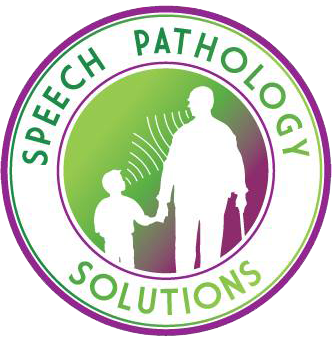Navigating the milestones of speech and language development can be challenging. Understanding these developmental stages is vital in determining whether a child is progressing typically or might require additional support. Early identification of speech delay in toddlers and support play a pivotal role in fostering a child’s self-expression and interaction with the world around them, ensuring they develop the necessary skills to thrive in social and educational settings. This proactive approach to monitoring speech development underscores the importance of being attentive to your child’s communicative behaviors and seeking professional guidance when uncertainties arise.
Understanding Speech Delay in Toddlers
It is important to understand the difference between a developmental delay in speech and the natural variations in language growth. Speech delay in toddlers typically refers to difficulties in developing or using the mechanisms needed for speech, including challenges in articulation, word formation, or language use. While each child develops at their own pace, there are established milestones that help gauge typical speech progression. These milestones can help in identifying potential delays, but it’s important to balance this awareness with the understanding that not all variations signify a problem. Early, accurate identification, ideally involving both parental observations and professional assessments, is essential for providing appropriate support for a child’s communication development.
Early Signs of Speech Delay
Identifying early signs of speech delay in toddlers is key to ensuring timely intervention. These signs can vary, but some common indicators include:
Limited Babbling or Vocalization by 12 Months: Babbling is an early form of speech development where infants experiment with sounds. Limited or no babbling by this age can be a sign of speech delay.
Absence of Simple Words like “Mama” or “Dada” by 15 Months: Most toddlers start to use simple words around this age. If they aren’t, it could indicate a delay in speech development.
Difficulty Combining Words by 2 Years: By the age of two, many toddlers begin to combine words into simple phrases. Difficulty in doing so can be a sign of a speech delay.
Limited Vocabulary Compared to Peers: If a toddler’s vocabulary is noticeably smaller than that of their peers, this could be an indicator of delayed speech development.
Difficulty Following Simple Instructions: Understanding and following simple instructions is a part of language development. Struggles in this area might suggest a delay in speech and language skills.
Common Causes of Speech Delay
Speech delays in toddlers can stem from various factors. Common causes include:
Hearing Impairments: Difficulty in hearing can significantly impact a child’s ability to learn and mimic speech. Regular hearing screenings are important to rule out any hearing loss as a cause of speech delay.
Developmental Disorders: Conditions such as autism spectrum disorders or general developmental delays can affect a child’s speech and language development.
Neurological Problems: Issues in the brain’s development or function, such as cerebral palsy or muscular dystrophy, can lead to speech delays due to challenges in controlling speech muscles.
Environmental Factors: A lack of stimulation, such as limited talking or reading to the child, can hinder speech and language development. Social interaction plays a key role in language acquisition.

The Impact of Speech Delay on Overall Development
Speech delay in toddlers can have far-reaching effects beyond just communication difficulties. The impact of these delays extends to various aspects of a child’s overall development.
Social Development: Communication is a key element in social interactions. Toddlers with speech delays may struggle to interact with peers, potentially leading to difficulties in making friends or social isolation. This can impact their ability to engage in group activities or play, which are crucial for social learning and emotional understanding.
Emotional Development: Effective communication skills are essential for expressing needs, desires, and feelings. When toddlers experience speech delays, they might face challenges in expressing their emotions appropriately, which can lead to frustration, behavioral issues, or lowered self-esteem.
Academic Progress: As children enter school, speech and language skills become increasingly important for learning. Speech delays can affect reading and writing abilities, comprehension, and the capacity to follow instructions and participate in classroom discussions. This can result in academic challenges and may require additional support or interventions.
Cognitive Development: Language is closely tied to cognitive development. Speech delays can impact a child’s ability to understand concepts, solve problems, and develop critical thinking skills. Delays in language development can also affect a child’s ability to process information efficiently.
Self-Esteem and Confidence: Children with speech delays might become self-conscious about speaking in front of others, potentially impacting their self-esteem and confidence. This can influence their willingness to participate in activities or express their thoughts and ideas.
Treatment Options for Speech Delays
Addressing speech delays in toddlers involves a variety of treatment strategies, primarily focusing on speech therapy conducted by qualified speech-language pathologists. These professionals employ a range of techniques tailored to each child’s specific needs.
Articulation Therapy: This type of therapy focuses on helping children produce sounds correctly. It involves exercises to strengthen the muscles used in speech, practicing sounds and words, and strategies to improve the clarity of speech.
Language Intervention Activities: These activities are designed to encourage children to understand and use language more effectively. This might include expanding their vocabulary, improving their sentence structure, and enhancing their listening skills.
Play-Based Therapy: Since play is a natural way for children to learn, play-based therapy uses this to its advantage. It incorporates language skills into play activities, helping children learn to communicate within the context of games and imaginative play.
Parent-Child Interaction Therapy: This approach involves training parents to support their child’s speech and language development through everyday interactions. Parents learn how to create opportunities for communication and respond to their child’s attempts at speech in ways that promote learning.
Use of Technology and Apps: In some cases, technology like speech-generating devices or educational apps can be integrated into therapy. These tools can support language development and offer engaging ways for children to practice their speech skills.

Concerned About Speech Delay? Speech Pathology Solutions is Here to Help
If you’re concerned about your child’s speech and language development, Speech Pathology Solutions is your go-to resource. Our team of dedicated speech-language pathologists specializes in identifying and treating speech delays in toddlers. We understand that each child is unique, and we tailor our approach to fit their individual needs. Our commitment to using evidence-based practices and our extensive experience in speech therapy make us well-equipped to support your child’s journey toward effective communication. By choosing Speech Pathology Solutions, you’re not just getting a service; you’re gaining a partner dedicated to nurturing your child’s potential. Don’t wait to seek help; early intervention is crucial for the best outcomes. Schedule a consultation and take the first step towards empowering your child’s communication skills.
Toddler speech delay f.a.q.s
What is considered normal speech development in toddlers?
Normal speech development varies, but by 2 years, most toddlers can use simple phrases.
How do I know if my toddler’s speech delay is due to a hearing problem?
Hearing problems can contribute to speech delays. Regular hearing screenings and evaluations by an audiologist are recommended if there are concerns.
Does speech delay mean my child will have difficulties in school?
Early intervention can significantly reduce the impact of speech delays on academic performance. However, some children may need ongoing support.
How can I encourage my toddler to speak more?
Engaging with your child through reading, singing, and regular conversation can encourage speech development. Responding to their attempts to communicate and providing a supportive environment are key.

